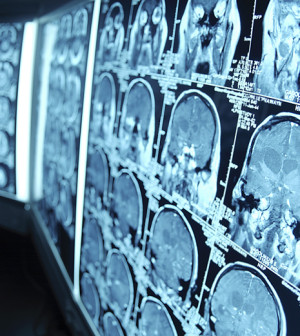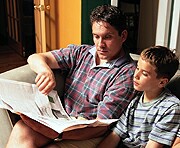- Could Your Grocery Store Meat Be Causing Recurring UTIs?
- Are You Making This Expensive Thermostat Error This Winter?
- Recognizing the Signs of Hypothyroidism
- 10 Strategies to Overcome Insomnia
- Could Artificial Sweeteners Be Aging the Brain Faster?
- Techniques for Soothing Your Nervous System
- Does the Water in Your House Smell Funny? Here’s Why
- Can a Daily Dose of Apple Cider Vinegar Actually Aid Weight Loss?
- 6 Health Beverages That Can Actually Spike Your Blood Sugar
- Treatment Options for Social Anxiety Disorder
Researchers See Link Between Dyslexia, Abuse


Adults with dyslexia are more likely to report that they were physically abused as children or teenagers than people who don’t have the learning disorder, according to a new study.
Dyslexia, which affects up to 10 percent of people, causes problems with reading and writing. Researchers found that 35 percent of adults with this condition said they suffered physical abuse during their childhood, compared to 7 percent of those without dyslexia.
“Even after accounting for age, race, sex and other early adversities such as parental addictions, childhood physical abuse was still associated with a sixfold increase in the odds of dyslexia,” study co-author Esme Fuller-Thomson, a professor at the University of Toronto’s Factor-Inwentash Faculty of Social Work, said in a university news release.
It’s unclear if dyslexia makes children a more likely target for abuse or if physical abuse contributes to problems with learning, the study’s authors said.
Study co-author Stephen Hooper is a professor of psychiatry and pediatrics at the University of North Carolina School of Medicine. He said: “It is possible that for some children, the presence of dyslexia and related learning problems may place them at relatively higher risk for physical abuse, perhaps due to adult frustrations with chronic learning failure.
“Alternatively, given the known association between brain dysfunction and maltreatment, it could be that the experience of physical abuse may also contribute to and/or exacerbate such learning problems,” Hooper said in the news release.
The study, published online recently in the Journal of Interpersonal Violence, involved more than 13,000 adults who participated in the 2005 Canadian Community Health Survey.
Based on their findings, the researchers concluded that doctors should screen all children with dyslexia for physical abuse.
“Although we do not know if the abuse-dyslexia association is causative, with one-third of adults with dyslexia reporting childhood abuse, it is important that primary health care providers and school-based practitioners working with children with dyslexia screen them for physical abuse,” Fuller-Thomson concluded.
More information
The U.S. National Institutes of Health has more about dyslexia.
Source: HealthDay
Copyright © 2026 HealthDay. All rights reserved.










